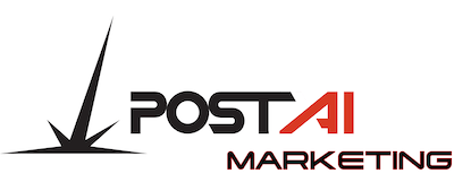Integrating AI Marketing Tools
Follow Lift Labs' comprehensive guide for marketers looking to seamlessly integrate AI tools into their strategies for enhanced outcomes.
GUIDES AND HOW TO'S


Introduction
In today's digital landscape, marketers are constantly seeking innovative ways to enhance their strategies and achieve better outcomes. One such solution is the integration of artificial intelligence (AI) marketing tools. AI has revolutionized the way businesses operate, and marketing is no exception. In this beginner's guide, we will explore the benefits, challenges, and best practices for integrating AI marketing tools into your strategy.
Benefits of AI Marketing Tools
Integrating AI marketing tools offers numerous benefits that can significantly impact your marketing efforts. Here are some key advantages:
1. Enhanced Data Analysis
AI tools can process vast amounts of data in real-time, providing marketers with valuable insights and predictive analytics. By analyzing customer behavior patterns, AI can help identify trends, preferences, and opportunities for personalized marketing campaigns.
2. Improved Customer Engagement
AI-powered chatbots and virtual assistants can provide instant customer support, answer queries, and offer personalized recommendations. This level of engagement can enhance the customer experience and build brand loyalty.
3. Efficient Marketing Automation
AI marketing tools can automate repetitive tasks such as email marketing, social media scheduling, and ad optimization. This automation allows marketers to focus on strategic activities and frees up valuable time for creative thinking and campaign optimization.
4. Personalized Marketing Campaigns
AI can analyze customer data to create personalized marketing campaigns tailored to individual preferences and behaviors. By delivering relevant content to the right audience at the right time, marketers can increase conversions and drive customer loyalty.
Challenges in Integrating AI Marketing Tools
While the benefits of AI marketing tools are compelling, there are also challenges to consider. Here are a few common hurdles:
1. Data Quality and Privacy
AI relies on high-quality data to generate accurate insights. Ensuring data accuracy and maintaining customer privacy are critical considerations when integrating AI marketing tools. Marketers must adhere to data protection regulations and implement robust security measures.
2. Skill Gap and Training
Implementing AI marketing tools requires a certain level of technical expertise. Marketers may need to upskill or hire professionals with AI knowledge to effectively leverage these tools. Providing adequate training and support is essential to ensure successful integration.
3. Integration with Existing Systems
Integrating AI marketing tools with existing systems and platforms can be complex. Compatibility issues, data migration, and system integration challenges may arise. It is crucial to plan and execute the integration process carefully to avoid disruptions to existing workflows.
4. Cost Considerations
AI marketing tools can be a significant investment. Marketers need to evaluate the cost-benefit ratio and consider the long-term value these tools can bring to their marketing strategies. Conducting a thorough cost analysis and ROI assessment is essential before making a decision.
Best Practices for Integrating AI Marketing Tools
Successfully integrating AI marketing tools into your strategy requires careful planning and execution. Here are some best practices to consider:
1. Set Clear Objectives
Define specific goals and objectives for integrating AI marketing tools. Whether it is improving customer engagement, increasing conversions, or optimizing campaign performance, having clear objectives will guide your implementation strategy.
2. Start Small and Scale
Begin with a pilot project or a specific use case to test the effectiveness of AI marketing tools. Starting small allows you to assess their impact and make necessary adjustments before scaling up across your entire marketing strategy.
3. Choose the Right AI Tools
Research and evaluate different AI marketing tools available in the market. Consider factors such as functionality, ease of integration, scalability, and customer support. Choose tools that align with your specific needs and budget.
4. Ensure Data Quality and Compliance
Prioritize data quality and compliance when integrating AI marketing tools. Regularly clean and update your data to ensure accuracy. Implement data protection measures and comply with relevant regulations to maintain customer trust.
5. Invest in Training and Support
Provide training and support to your marketing team to ensure they have the necessary skills to effectively leverage AI marketing tools. This investment will enable them to maximize the benefits and drive better outcomes.
6. Monitor and Evaluate Performance
Continuously monitor and evaluate the performance of AI marketing tools. Analyze the data generated by these tools to measure their impact on key metrics and make data-driven decisions for optimization.
Conclusion
Integrating AI marketing tools can revolutionize your marketing strategy and drive better outcomes. By leveraging the power of AI, marketers can enhance data analysis, improve customer engagement, automate tasks, and deliver personalized campaigns. However, it is essential to consider the challenges, such as data quality, skill gaps, integration complexities, and cost considerations. By following best practices and carefully planning the integration process, marketers can harness the full potential of AI marketing tools and stay ahead in the ever-evolving digital landscape.
